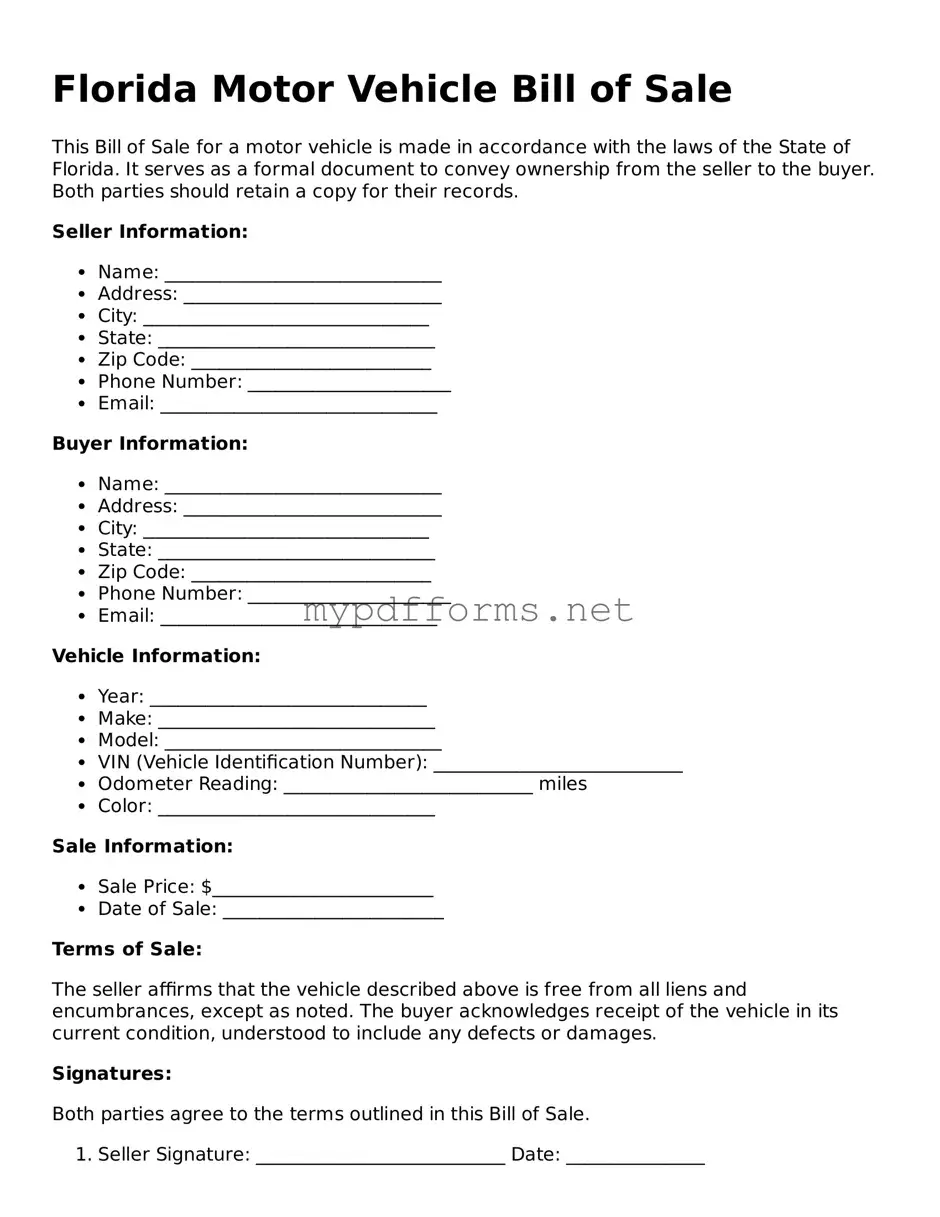The Florida Motor Vehicle Bill of Sale form is similar to the general Bill of Sale, which is used across various states for the transfer of ownership of personal property. Like the motor vehicle version, this document outlines the details of the transaction, including the buyer and seller's information, a description of the item being sold, and the purchase price. Both forms serve as proof of ownership transfer, protecting the interests of both parties involved in the sale.
The Vehicle Title is another document closely related to the Florida Motor Vehicle Bill of Sale. The title serves as legal proof of ownership for a vehicle. When a vehicle is sold, the seller must sign over the title to the buyer, often in conjunction with the Bill of Sale. This ensures that the new owner can register the vehicle in their name, providing a clear chain of ownership.
A Purchase Agreement is also similar in nature. This document outlines the terms of the sale, including the price, payment method, and any conditions that must be met before the sale is finalized. While the Bill of Sale acts as a receipt for the transaction, the Purchase Agreement details the obligations of both parties, ensuring clarity and mutual understanding.
The Odometer Disclosure Statement is another important document when selling a vehicle. This form records the vehicle's mileage at the time of sale, which is crucial for preventing fraud. It is often required alongside the Bill of Sale to provide a complete picture of the transaction, ensuring that the buyer is fully informed about the vehicle's condition.
The Vehicle Registration form is similar as it is necessary for legally operating a vehicle on public roads. After acquiring a vehicle, the new owner must register it with the state. The Bill of Sale is often required during this process to confirm ownership and facilitate the registration of the vehicle in the buyer's name.
A lien release document may also come into play if the vehicle was previously financed. This document proves that any outstanding loans on the vehicle have been paid off. When selling a vehicle, the seller must provide this release to the buyer, ensuring that the buyer receives clear title without any financial encumbrances.
To facilitate a smooth transaction, it is imperative for both the buyer and seller to complete the necessary documentation, such as the Motor Vehicle Bill of Sale form which outlines the specifics of the vehicle and ensures legal protection for both parties involved in the sale.
The Affidavit of Heirship is relevant in cases where a vehicle is inherited. This document certifies the transfer of ownership from a deceased individual to their heirs. Similar to the Bill of Sale, it provides legal proof of ownership transfer, but it specifically addresses situations involving inheritance rather than a traditional sale.
The Statement of Facts may be used in certain situations to clarify the circumstances surrounding the sale or transfer of a vehicle. This document can help resolve any discrepancies or misunderstandings between the buyer and seller. It complements the Bill of Sale by providing additional context and information about the transaction.
Finally, the IRS Form 1099 may be relevant for tax purposes when a vehicle is sold. This form reports the sale to the Internal Revenue Service, especially if the transaction involves a significant amount of money. While it serves a different purpose than the Bill of Sale, it is important for both parties to be aware of their tax obligations following the sale.

